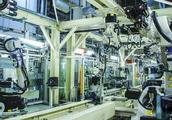

The soul of intelligent manufacturing-MES system
Introduction
Industrial software exists in every corner of intelligent manufacturing. Important industrial software includes MES systems, PLM (PDM), etc. MES is the soul of intelligent manufacturing and is the intersection that runs through all links (production, engineering technology and manufacturing).
The core of the "upgraded version" of industrial manufacturing is to open up information flow through informatization and digitization, create lower-cost, higher-performance, and more flexible manufacturing capabilities, and realize intelligent manufacturing.
Generally speaking, the enterprise production and operation management process can be divided into three layers, namely the planning layer, the execution layer and the control layer.
Through the planning layer management (ERP, MRP, etc.) system, the company integrates the company's existing production resources and prepares production plans based on customer needs, inventory, market forecasts, etc.; the execution layer develops workshop operation plans and arranges them based on the production plans issued by the planning layer. Controls the processing tasks of the layer, summarizes and reports job plans and task execution status. The production process of the entire factory is not transparent. When production plans change, material shortages, equipment failures, processing quality and other problems arise, information cannot be effectively transmitted, and production cannot be adjusted and optimized in a timely manner.
In order to make up for the information gap between the planning layer and the control layer, the control layer MES emerged as the times require. MES monitors production information, conducts upward transmission to the planning layer, and controls downward to the execution layer, integrating the upper-level production planning system of the enterprise with the The equipment control systems at the lower levels of the workshop are connected, filling the gap between the upper and lower levels, opening up the factory information channel, making it the basis and necessary condition for realizing the "upgraded version" of industrial manufacturing.
The MES system is a production information management system oriented to the executive level of manufacturing enterprises. MES can provide enterprises with manufacturing data management, planning and scheduling management, production scheduling management, inventory management, quality management, human resources management, work and equipment management, tool and tooling management, procurement kilometers, cost management, project dashboard management, and production process control. , underlying data integration analysis, upper-level data integration and decomposition and other management modules to create a solid, reliable and feasible manufacturing collaborative management platform for enterprises.
MES is part of enterprise informatization. It was first proposed by the American AMR Company and subsequently developed rapidly in the United States and Europe. The future market space of MES software is vast, and the compound growth rate remains at around 40%. In 2014, the global MES industry market size was approximately 41.6 billion yuan. In the past five years, it has maintained a rapid growth rate of 21.65% per year. By 2020, the MES industry market size is expected to reach 93.1 billion yuan, and will maintain a compound growth rate of 18% per year in the future.
The demand for MES in China is relatively strong. In 2014, the market size of the MES industry was approximately 2.6 billion yuan, a year-on-year increase of 25%. By 2018, the market size will reach 10 billion yuan, and the average growth rate in the future will remain around 40%. In terms of growth rate comparison, domestic MES The market growth rate is significantly higher compared to the international market, which is due to the larger domestic industrial automation transformation practice.
MES is mainly used in industrial manufacturing fields of process type and discrete type. Process manufacturing industries such as petroleum and petrochemicals, chemicals, metallurgy and mining, pharmaceuticals, food and beverages and other livelihood industries; discrete manufacturing industries such as automobiles, machinery manufacturing and electronic communications industries.
Compared with foreign MES, my country's MES industry has a shorter development history and the market has just emerged. By learning from the development models of foreign advanced MES manufacturers and based on the needs of equipment manufacturers, MES systems are specially developed to meet the domestic manufacturing industry. MES has been industrialized in developed countries, and a number of leading companies have emerged. Domestic enterprises are currently small in scale and have weak competitiveness. However, due to the low utilization rate of MES in the domestic manufacturing industry, the market flexibility is sufficient. In addition, the cost of domestic software talent is low and software service companies have a better understanding of the manufacturing production process. Therefore, domestic A number of excellent MES companies will grow relatively quickly.
In addition, the industrial trend of "Industry 4.0" has swept the world in recent years and will be the direction of the transformation and upgrading of China's manufacturing industry. The core of Industry 4.0 is to open up the information flow through informatization and digitization, realize information interaction between the upper, middle and lower levels, and achieve intelligent manufacturing. Industrial software exists in every corner of intelligent manufacturing. Important industrial software includes MES, PLM (PDM), etc. MES is the soul of intelligent manufacturing and is the intersection that runs through all links (production, engineering technology and manufacturing). As an important part of the informatization of manufacturing enterprises, MES has very broad application prospects in the "Industry 4.0" era.
Disclaimer: This article is reproduced from OFweek and recommended for reading by Tiantuo Sifang (http://www.bjttsf.com). If there is any infringement, please contact us to delete it. Thank you.
